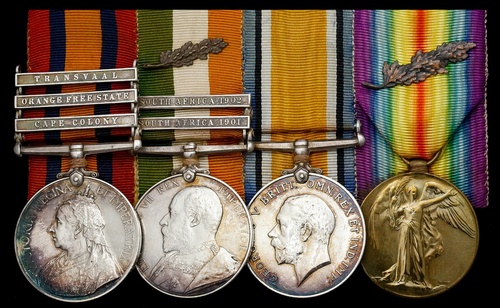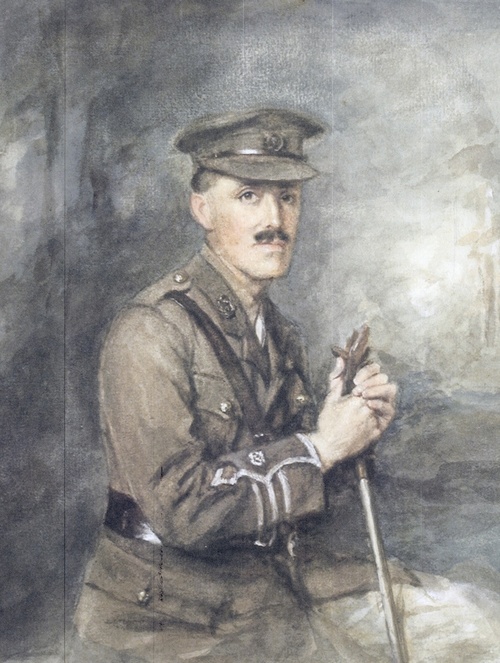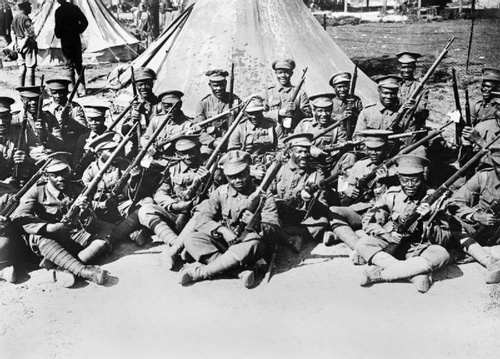Auction: 17002 - Orders, Decorations and Medals
Lot: 155
An interesting Boer War and Great War campaign service group of six awarded to Major R. R. Leader, British West Indies Regiment, late Cape Mounted Rifles and Army Service Corps
Having been taken P.O.W. at Bird's River in January 1901 and commissioned on his release, he commanded the British West Indies Regiment in East Africa in the latter half of the Great War
Queen's South Africa 1899-1902, 3 clasps, Cape Colony, Orange Free State, Transvaal (Lieut. R. R. Leader, A.S.C.); King's South Africa 1901-02, 2 clasps, South Africa 1901, South Africa 1902 (2 Lieut. R. R. Leader, A.S.C.); together with an official duplicate pair, the Q.S.A. to '3467 Pte. R. R. Leader, C.M.R.' and the K.S.A. to '2 Lieut. R. R. Leader, A.S.C.'; British War and Victory Medals, M.I.D. oak leaf (Major R. R. Leader), mounted court-style as worn, one or two unofficial clasp rivets, edge bruising, generally very fine or better (6)
The recipient's original Boer War Medals were issued in August 1905 and he received duplicate issues in February 1924; the relevant roll and his MIC refers.
Robert Ripley Leader enlisted in the Cape Mounted Rifles in October 1899 but was attached to the Provisional Transvaal Constabulary in the period June 1900 to February 1902: it was in this capacity that he was taken P.O.W. near Bird's River on 8 January 1901. Subsequently released, he was commissioned in the Army Service Corps in April 1902, on the nomination of G.O.C.-in-C., South Africa (London Gazette 22 April 1902, refers).
Seconded to the West India Regiment, Leader was advanced to Lieutenant in October 1904 and was likewise employed in the period leading up to the Great War. Following the outbreak of hostilities and the formation of the British West Indies Regiment (B.W.I.R.), he was embarked for East Africa:
'In July 1916, 500 men of the B.W.I.R. were sent to fight in German East Africa. There they were engaged in guarding the railway captured from German forces, manning communications posts, and finding and capturing German ammunition dumps. This was a difficult and little-remembered posting. The rainy season brought challenging conditions and soldiers suffered from malaria, exposure and lack of supplies, including clothing and food … By the end of the First World War, 185 men from the B.W.I.R. had been killed in action and 1071 died of sickness' (The Imperial War Museum's website, refers).
Leader was mentioned in despatches for his command of the regiment in the rank of Major (London Gazette 6 August 1918, refers).
Subject to 20% VAT on Buyer’s Premium. For more information please view Terms and Conditions for Buyers.
Sold for
£700









